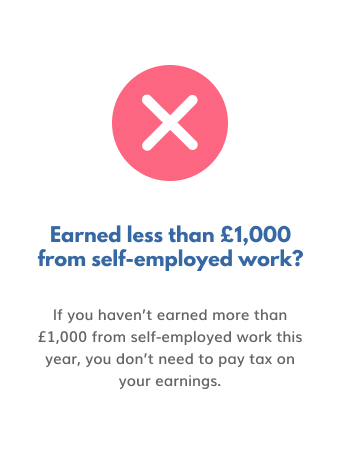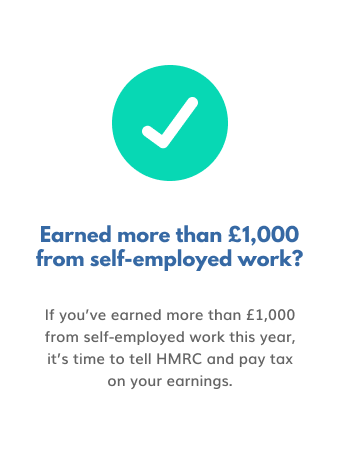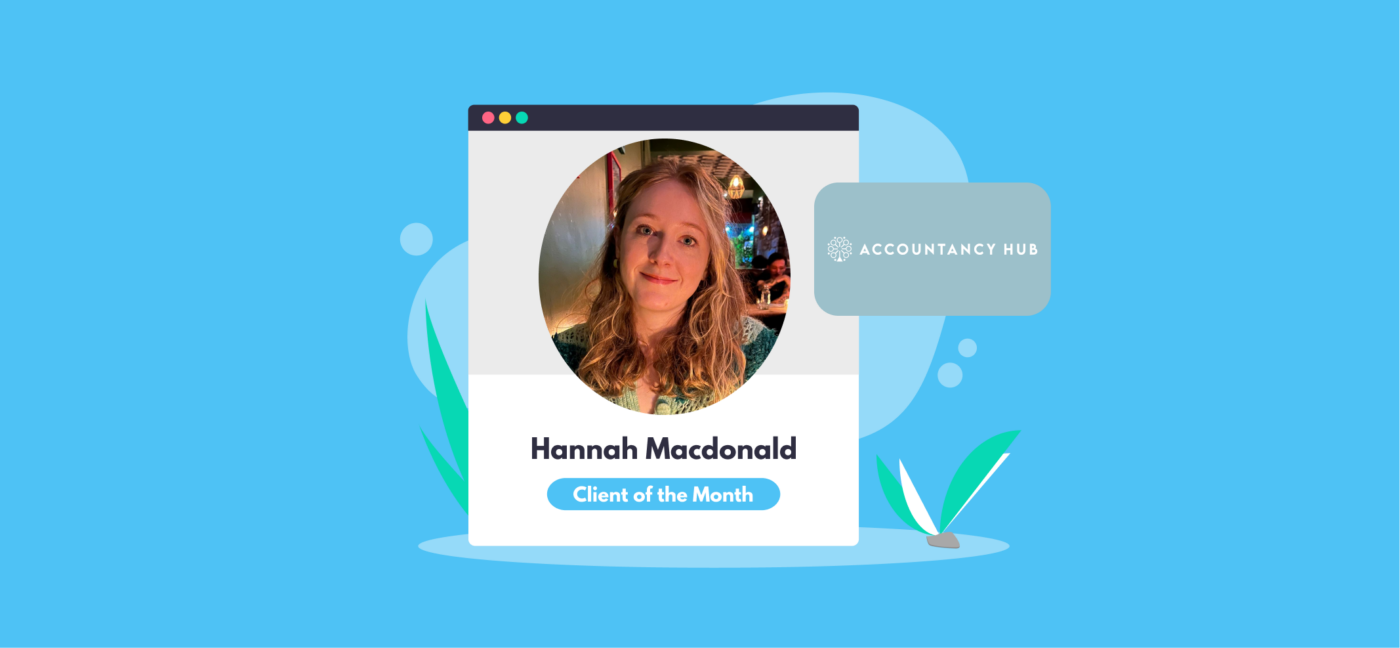

Tax for Creators and Patreon Users
Are you working as a creator? Perhaps as an artist, musician, writer, game designer, or even a podcaster? If so, it’s perfectly understandable if the last thing you want to think about is tax. Unfortunately, tax is unavoidable, but a little planning could save you considerable stress and money later. We’ll go over the ins and outs of paying tax on the earnings you make as a Patreon creator.
Tax for creators – where to start
Whether you’re a budding Picasso, Ed Sheeran, or Agatha Christie, as far as HMRC are concerned, you’re no different from a carpenter or plumber when it comes to paying tax – even if you’re doing it as a side-hustle. As such, some standard principles apply, so we’ll start with a series of questions.
Are you trying to make money with your creative work?
Top of this list is whether or not you are trying to make money from what you do. In other words, do you have a profit motive? If you do, quite simply, you’re a business. This applies even if you have another full-time job doing something completely different, or if you’re not making any profits from your venture.
Are there any exceptions?
The good news is that if the income from your creative work is relatively minor, you may be able to take advantage of the trading allowance. Thanks to the trading allowance, you can earn up to £1,000 from a self-employed hobby business each tax year, without needing to tell HMRC or pay tax on it.
That means you’ll need to add together all the money that you make on sales to work out how much you’ve earned. As long as it’s less than £1,000 in a tax year then you won’t need to register.


How many transactions do you make?
The second consideration is the number of transactions your enterprise makes. If your transactions indicate a one-off activity for which you were paid, this may suggest that you’re not trading.
However, if you seek to sell several items, or – as we shall see later, via Patreon – manage a fee-based system with your customers, that will indicate that you are operating as a business. More information on what HMRC call the badges of trade can be found on HMRC’s website. Brace yourself – it’s quite a read.
As you’ll see, there is an awful lot of common sense involved. If it looks and feels like you’re doing business, the chances are that you’ll be considered as trading from a tax perspective.
Claiming the trading allowance and tax relief
We’re accountants, so we’re going to jam the brakes on here and point out that even if your income is above the trading allowance threshold, you can still use it to reduce the amount of tax that you pay. You have an important choice to make:
- Claim the £1,000 trading allowance on your tax return
- Claim your expenses on your tax return
Using the trading allowance versus claiming expenses
When you complete your Self Assessment tax return you can choose to either claim your £1,000 trading allowance, or the expenses which you incurred in the year.
For example, if you made £5,000 of sales, you could then claim the £1,000 allowance in your tax return, reducing your taxable profit to £4,000. Tax is paid on profit, so reducing your profits with the trading allowance means you’ll pay less tax.
While this is nice and simple, it might not be in your best interests to do this. This is because HMRC’s rules allow you to deduct certain business expenses from your income.
Taking our example above, imagine that you still make the £5,000 worth of sales. You also have £1,500 of expenses which you can claim tax relief on, and offset against your earnings.
In that case, you might decide to claim your £1,500 of expenses rather than claiming the £1,000 trading allowance, because that way you can claim more tax relief, and therefore pay less tax. We show a very basic calculation in the table below (although obviously your final tax bill would depend on lots of other things).
| Claiming the £1,000 Trading Allowance | Claiming your £1,500 allowable expenses | |
| Income | £5,000 | £5,000 |
| Deductions | £1,000 trading allowance | £1,500 expenses |
| Taxable profit Income minus deductions |
£4,000 | £3,500 |
| Basic Rate Tax payable 20% of your taxable profits |
£800 | £700 |
As an aside, it is imperative that you keep your business-related records up to date, with a process known as bookkeeping. Keep all your records safely and conveniently filed so that you have all the backup for your sales and expenses to hand when you do your tax return.
Make sure you keep them after you’ve submitted, too. You may well need them in the future to justify your numbers to HMRC! Plus, keeping great records will mean you claim for every possible allowable expense.
What sort of business structure should I use?
The legal structure that you use to register your business is entirely up to you, and what suits you best! If you’re starting up by yourself then the two most common options are to:
There are considerations using either structure, and whether these are a positive or a negative factor depends very much on your circumstances. We explain these in more detail in the blog link below, and you can compare your estimated tax bill for each structure using our online tax calculator.
Creative industry tax relief for limited companies
Being a limited company in the creative fields may have an added attraction when it comes to its tax treatment. If your business is in one of the following fields, you may be eligible for a special Creative Industries tax relief:
- Films
- High-End television
- Animation
- Video games
- Children’s television
- Theatre
- Orchestra
- Galleries or museums
Using Patreon to sell your creative work from the UK
If you’re working as a creator, you may well be familiar with the Patreon platform. It allows the creator to make their work accessible directly to their customers and fan base.
Better still, by using a membership or subscription model, it gives the creator a much more predictable revenue stream, and offers creators the chance to sell a more personalised experience such as:
- Access or insight: This could mean access or insight into content your audience wouldn’t normally get to see, such as behind the scenes footage of a studio recording.
- Engagement: Direct contact with your customers, recording live streams, or perhaps hosting online events.
- Fan recognition: Add their names to your products. Personal recognition of their following can be very attractive to some fans.
- Digital and physical products: This feature allows you to distribute products directly to your supporters. This could, for example, be a web comic, or a personalised sketch. Basically, whatever you think will appeal to your customers.
How much should I charge for my work on Patreon?
One of the most common questions from anyone selling their own products or services is about what to charge. Know your worth! Research what other sellers charge, and factor in the effort that you put into production.
It’s also worth knowing that, like pretty much all ecommerce platforms, you’ll be charged for hosting and handling fees. Patreon earns fees from you in two ways.
- Firstly, it charges everyone to process their payments, and these fees range from 2.9% to 5%, depending on the size of the transaction
- Secondly, it also charges you a monthly fee depending on which package you have signed up for. The basic ‘Lite’ package, which includes hosted pages, communication tools and workshops, costs 5% of your monthly revenues. A ‘Pro’ package, which includes extra features, will set you back 8% of your revenues, while its top package, the ‘Premium’, will cost you 12%. Full details can be found on the company website.
Claiming Patreon costs as expenses
If you’re deducting some expenses from the profit you’re declaring on your Self Assessment return, some Patreon costs may be allowable.
For example, you may be able to offset the fees you pay to Patreon, and any currency conversion costs if you’ve been paid in foreign currencies against your taxable profit.
Again, make sure you keep your records neat and accessible. This will make filling in the return much simpler, and help you avoid the risk of incurring HMRC penalties for late or incorrect submissions.
Patreon and tax for UK creators
The first thing to get clear in your mind is this: your earnings from Patreon are taxable. The second thing you need to know is that Patreon will not help you when it comes to sorting out your tax. It is solely your responsibility!
If you sign up for Patreon in particular, you will find that you are confronted with a scary sounding W-8BEN form during the initial process. You have to complete this to be able to trade from the platform.
What is a W-8BEN form, and why do I need one on Patreon?
In short, it’s not as scary as it sounds, but it is worth understanding why you’re filling it in. You need to do this because Patreon is an American company registered for tax in the United States.
Under US rules, you would ordinarily need to withhold a proportion of the payments made by any of your US customers, in order to pay tax to the US tax authorities. However, don’t panic, fill in the form, and you won’t need to do this because the United States and the United Kingdom have a tax treaty in place.
Put simply, by filling in the form, you are removing yourself from the clutches of the US tax authorities, and you’ll only need to worry about your UK tax payments.
A word on VAT for UK Patreon creators
If your taxable revenue reaches the VAT registration threshold in a 12-month period (or you think it will within the next 30 days) you must register for VAT.
You can also voluntarily register for VAT before reaching the threshold. It is then your choice whether you charge VAT and recover it on the items related to your business that you have purchased. What is essential is that you are registered before you charge VAT.
If you’re a creative and want help with any aspect of tax, feel free to give us a call and talk to one of the team on 020 3355 4047, or get an instant online quote.
Want to learn more?
Subscribe to our newsletter to get accounting tips like this right to your inbox

Read more posts...

February 2026 Client of the Month: Accountancy Hub
27th February 2026This month we spoke to Hannah, founder of Accountancy Hub. Accountancy Hub | Instagram Hey Hannah! Tell us about your business…
Read More
Paying Yourself a Salary from Your Limited Company
26th February 2026Being a director means you’re legally separate from your limited company even if you’re also the owner, so you’ll need to decide…
Read More
How Do Footballers Pay Tax?
24th February 2026We all know top-flight footballers do alright. But how does tax work for professional footballers? Is it treated as self-employed income, or…
Read MoreConfirm Transactions
The number of monthly transactions you have entered based on your turnover seem high. A transaction is one bookkeeping entry such as a sale, purchase, payment or receipt. Are you sure this is correct?
Please contact our sales team if you’re unsure
VAT Returns
It is unlikely you will need this service, unless you are voluntarily registered for VAT.
Are you sure this is correct?
Call us on 020 3355 4047 if you’re not sure.
MTD IT Quarterly Updates
Your final, end of year MTD Income Tax submission is included in your fee, without this add-on service.
We would recommend you submit the quarterly updates yourself using Pandle or alternative bookkeeping software.
However, if you would prefer us to submit these quarterly updates for you, there is an additional fee of £35.00 per month.
Call us on 020 3355 4047 if you’re not sure.
Bookkeeping
You will receive our bookkeeping software Pandle for free, as part of your package.
You can use this to complete your own bookkeeping, or we can provide a quote to complete your bookkeeping for you.
Please select and option below:
Call us on 020 3355 4047 if you’re not sure.

